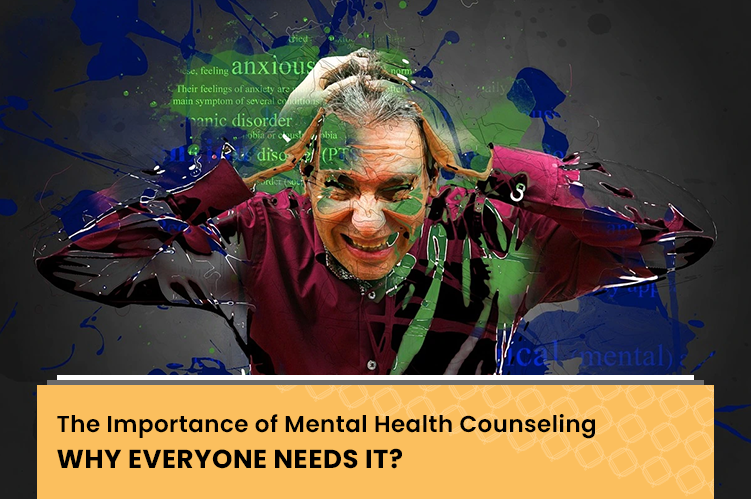

In today’s fast-paced and interconnected world, the prominence of behavioral health issues has become more apparent than ever. From stress and anxiety to depression and addiction, behavioral issues encompass various challenges that impact individuals’ emotional, psychological, and social well-being. This article aims to comprehensively understand behavioral issues by exploring their causes, manifestations, and effective solutions that can lead to healing and improved mental health.
Understanding Behavioral Health Issues:
Behavioral health issues, often referred to as mental health disorders, encompass a variety of conditions that affect an individual’s thoughts, emotions, behaviors, and overall mental well-being. These issues range from common stress and anxiety to more severe conditions such as bipolar disorder, schizophrenia, and substance abuse disorders.
Behavioral issues are not limited to any specific demographic; they can affect people of all ages, genders, races, and backgrounds. Acknowledging and addressing these issues is crucial for promoting overall well-being and preventing them from escalating into more complex challenges.
Causes of Behavioral Health Issues:
Behavioral issues are complex and arise from genetics, environment, brain chemistry, and life experiences. Some common causes include:
- Biochemical Imbalances: Chemical imbalances in the brain, such as neurotransmitter irregularities, can contribute to conditions like depression and anxiety.
- Chronic Stress: Prolonged exposure to stressors, whether related to work, relationships, or other sources, can contribute to the development of various conditions.
- Environmental Factors: Experiencing trauma, abuse, or significant life changes can trigger or exacerbate behavioral health issues.
- Genetic Predisposition: A family history of certain behavioral issues can increase the likelihood of an individual developing similar conditions.
- Substance Abuse: Substance abuse can lead to or worsen behavioral issues, creating a complex interplay between addiction and mental health.
Indicators of Behavioral Health Issues:
Behavioral health issues manifest differently in individuals based on factors such as the specific condition, genetic predisposition, and environmental influences. Common manifestations include:
- Mood Disorders: Conditions like depression and bipolar disorder can lead to persistent sadness, hopelessness, and mood fluctuations.
- Anxiety Disorders: Anxiety disorders result in excessive worry, fear, and physical symptoms such as rapid heart rate and shortness of breath.
- Psychotic Disorders: Psychotic disorders, such as schizophrenia, involve distorted thinking, hallucinations, and impaired perception of reality.
- Eating Disorders: Conditions like anorexia, bulimia, and binge-eating disorder are characterized by unhealthy eating behaviors and distorted body image.
- Substance Use Disorders: Substance abuse can lead to addiction, creating a cycle of dependency that affects mental and physical health.
Effective Solutions for Behavioral Health Issues:
Addressing behavioral health issues requires a multi-faceted approach that combines Behavioral health services, medical, psychological, and social interventions. Effective solutions include:
- Holistic Therapies: Practices such as yoga, meditation, online therapy California, and music therapy can complement traditional treatments by promoting relaxation and self-expression.
- Lifestyle Changes: Adopting a healthy lifestyle that includes regular exercise, balanced nutrition, and sufficient sleep can positively impact mental health.
- Medication: In some cases, medication can help manage the symptoms of behavioral health issues. Antidepressants, mood stabilizers, and antipsychotic medications are commonly prescribed to address specific conditions.
- Professional Help: Seeking help from professional Behavioral health services provider, including online therapist California, psychologists, and counselors, is essential for accurate diagnosis and appropriate treatment planning.
- Supportive Networks: Building and maintaining strong social connections with friends, family, and support groups can provide emotional support and alleviate feelings of isolation.
- Therapeutic Interventions: Psychotherapy, also known as talk therapy, offers individuals a safe space to explore their thoughts, feelings, and behaviors with a trained online therapist California. Cognitive-behavioral therapy (CBT), dialectical behavior therapy (DBT), and mindfulness-based online therapy California are available therapeutic approaches.
Debunking Stigmas and Fostering Awareness:
One of the biggest challenges in addressing behavioral health problems is overcoming stigmas and misconceptions. Society’s perception of mental health has historically been marred by misunderstanding and discrimination. However, increasing awareness and open conversations are gradually breaking down these barriers.
Advocacy efforts, public campaigns, and media representation are working to normalize discussions about behavioral health issues. Encouraging individuals to seek Behavioral health services when needed and fostering an environment of empathy and understanding are critical steps toward removing stigmas associated with mental health challenges.
Preventive Measures and Long-Term Well-Being:
Prevention plays a significant role in managing behavioral health issues. Educating individuals about healthy coping mechanisms, stress management, and recognizing early signs of distress can empower them to take proactive steps to maintain their mental well-being. Schools, online therapist California, workplaces, and communities can implement programs focusing on mental health education, destigmatization, and prevention.
Conclusion:
Behavioral health issues encompass a spectrum of emotions, challenges, and triumphs. Acknowledging the complex interplay of factors contributing to these issues and adopting a multi-faceted approach to solutions is pivotal. By promoting awareness, compassion, and access to effective interventions, we can pave the way for improved mental well-being, empower individuals to seek help without hesitation and create a society that prioritizes and nurtures the mental health of all its members. In this journey, understanding, empathy, and holistic support can lead to lasting change and a brighter future for individuals facing behavioral health problems.




